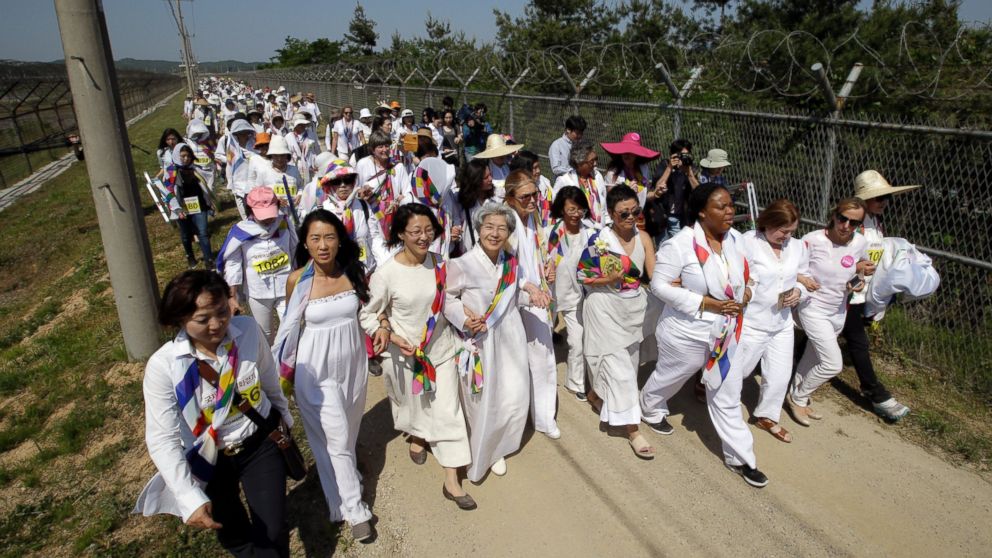Gloria Steinem, Female Peace Activists Cross Korea Border
The group had wanted to walk through the DMZ.

DORASAN STATION, South Korea -- Female activists including Gloria Steinem, Medea Benjamin, and two Nobel Peace laureates crossed the border between North and South Korea today, calling for peace and for more women to be involved in that process.
The group of 30 women arrived at Dorasan Station dressed in white with colorful traditional Korean scarves wrapped around them.
“It was an enormous, enormous triumph,” Steinem said of their trip inside North Korea. “We feel very celebratory and positive that we have created a voyage across the DMZ in peace and reconciliation that was said to be impossible.”
Some anti-North Korean groups heavily criticized the event, saying the women were naive and ignored raising human rights issues by the communist state.
“They don’t deserve to come here,” one woman shouted at a small protest near the border. “There’s no peace in North Korea and they go and praise Kim Jong-un and his family? There are millions starving to death but these women are blind to reality.”
The group repeatedly stressed that this was not a political event and the purpose was to open dialogue on the civilian level.
“It’s a very repressive country, but it was great for us to go there … and have some real dialogue and some interactions with women,” said Benjamin, the co-founder of Code Pink, a left-wing peace activist group. “I met women who’ve never met an American before in their lives and they had such terrible ideas about us and we became close friends. We were all crying when we left this morning saying goodbye.”
Hundreds of South Korean women greeted the activists at the southern part of the Unification Bridge and together marched over a mile by the barbed wire fences to a peace festival at nearby Nuri Peace Park.
The women originally planned to cross the border through the truce village of Panmunjum, where North and South Korean soldiers stand guard on each side of the military demarcation line. But the South Korean government had refused to give authorization, citing concerns over their safety.
The organizers expressed disappointment but said the crossing itself was a successful “historic event” getting “both Korean governments to communicate.”
The group made entry into South Korean by a bus instead, as recommended by the South Korean government, through a road that connects South Korea and the North Korean city of Gaesong.
This is not the first time a non-political group crossed the inter-Korean border. Bikers from New Zealand took the same route in 2013 and another group of Korean-Russians drove SUVs through the DMZ last year.
Yeon-joo Lee and Yoon-geon Hong contributed to this report.




